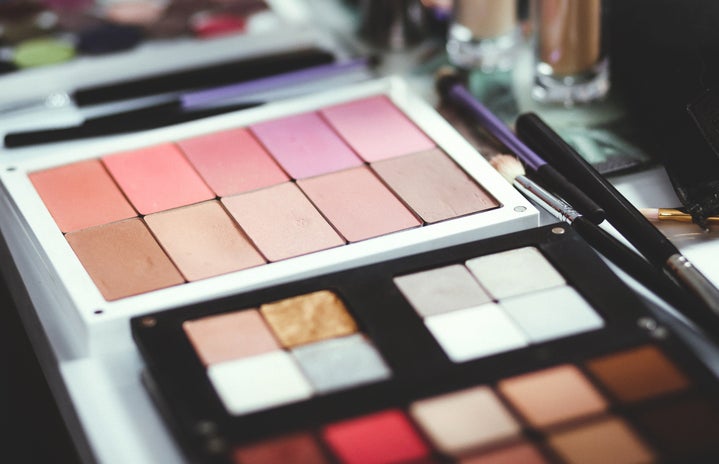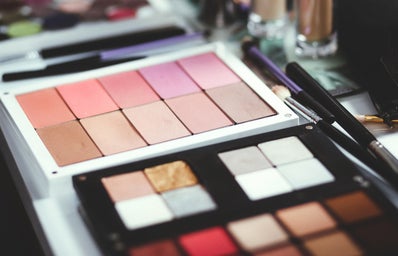People generally assume that chemicals are harmful and irritating for the skin. Many people follow the rule that if you can’t read out the ingredients listed on the back of your skincare product, then you shouldn’t use it. While going au naturel may be the way to go for some people, when I started suffering from severe acne at age 12, all the oils and fruits that I put on my face did not help at all. From trial and error and a lot of extensive research about different skin care ingredients, I found that there are a lot of chemicals out there on the market that do a lot of good for your skin. Here are some of the most popular chemicals out there that I have personally tried and tested:
Hyaluronic Acid:
Leaves are changing colour, the wind is getting colder, and your skin is getting drier. We’ve tried all the heavy night creams and moisturizers, but you’re still left with dry patches on your face. If this sounds all too familiar, then you might be interested in adding hyaluronic acid to your skincare routine. Hyaluronic acid is naturally found in our skin and within the connective tissue in our bodies. This acid works its magic by attracting and retaining moisture- according to one study, a gram of hyaluronic acid can hold up to six litres of water. With its incredible ability to replenish your skin, this chemical is bound to leave your skin plump, glowing and radiant- it’s no wonder why this bad boy is soaking up all the love in the beauty industry.
Retinol
Retinol is a derivation from Vitamin A, which works by exfoliating your skin and increasing cell turnover. You will experience redness and peeling, which can be a pain to deal with but this is one of the most effective acne treatments that I have tried. Due to its ability to promote skin cells to turn over rapidly, this allows accelerated new cell growth which can help with discolouration, acne, and even enlarged pores. Retinol is also a very popular anti-aging product due to its ability to enhance collagen production. One word of advice: because retinol works by exfoliating the dead skin cells, your skin will be more sensitive to sun exposure- so make sure you are diligent about wearing sunscreen!
Salicylic acid
Similar to retinol, salicylic acid is a well-known exfoliant in the beauty industry. It works by softening and dissolving dead skin cells. Unlike other exfoliants, instead of just remaining on the surface layer of the skin, salicylic acid is able to penetrate oily skin and clear out clogged pores; this allows sebum to flow out more freely. Because of this, this acid works best for treating blackheads and whiteheads.
Final words of wisdom:
-
As with any kind of skincare products, what works for some people may not work for you. I highly encourage you to do more research and search for reviews!
-
If you want to try any of the exfoliating chemicals listed above, make sure you don’t use them in combination. Also, make sure not to use these products every day unless the product specifies that you can do so. Usually, 2-3 times a week is ideal.
-
Almost all chemicals used in skincare products come in different concentrations. When you are first trying out any of the chemicals listed above, try the smallest concentration initially and then work your way up. (I learned this the hard way when I got greedy and picked the highest concentration of retinol on my first try- I woke up with extremely painful, irritated skin the next morning.)
-
Finally, if you are suffering from any kind of skin concerns like acne, wrinkles, redness, acne scars, or whatever it may be, I know how frustrating it can be when nothing seems to work. I tried everything from all-natural home remedies to getting 6 different prescriptions, to investing in overpriced skin regimens. It took me about 7 years to finally get rid of the severe acne that I had on my face, and during those 7 years I realized that nobody really cares about the pimples on your face as much as you think they do. So don’t you worry, be patient and give your skin some time – don’t be afraid to try different products but also don’t stress too much if you’re having difficulty finding a remedy for your skin problems. Love your skin, be optimistic, and radiate from deep within, not just from your skin.
Images obtained from:
http://www.clearwatertanning.com/wp-content/uploads/tan-moisture.jpg
http://assets.becomegorgeous.com/assets/static.becomegorgeous.com/img/ar…
https://img.purch.com/h/1000/aHR0cDovL3d3dy5saXZlc2NpZW5jZS5jb20vaW1hZ2V…
Sources:
http://www.byrdie.com/what-is-hyaluronic-acid
https://www.allure.com/story/what-does-salicylic-acid-do
https://beautyeditor.ca/2017/06/09/salicylic-acid


